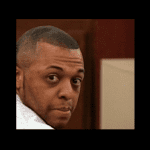"How many home runs did the quarterback shoot?"
That's the sort of question 60 Minutes might ask if they began covering sports with the same contextless, ignorant approach they sometimes take on matters of religion.
Amy Sullivan of Politicalaims has already commented on how 60 Minutes on Sunday confused evangelicals with fundamentalists, and thus totally distorted what Peter Gomes of Harvard had to say about the former by making it look like he was talking about the latter.
Morley Safer reported that evangelical Christians seem to have some kind of influence on the Republican Party. To anyone who's been alive and awake in America for the last three decades, this is old news. What was particularly strange about Safer's report was the way he seemed to think he had a hot scoop.
Poor Safer was out of his depth. He was not sure what an evangelical is, or who to ask about it, or how to evaluate what they told him. Safer came across as befuddled and asea — the second-most embarrassing appearance on a news show this Sunday.
Howard Dean was widely criticized for putting the book of Job in the New Testament and for generally having a tin ear for matters of faith. But compared to Safer, Dean comes across like Jesse Jackson.
Safer's reporting on religion has the treacherous naivete of a babe in the woods — or of a Paul Wolfowitz in Iraq. Like the Pentagon's Wolfowitz, Safer relies heavily on the distorted impression he gleans from unreliable fringe leaders. Safer's Chalabian native guides are none other than our old friends Timothy LaHaye and Jerry B. Jenkins, the co-authors of the heretical Left Behind series of apocalyptic fiction, which may well be the Worst Books Ever Written.
Reporting on evangelical Christians shouldn't be that hard. Others have done it well. A simple Google search would have turned up scores of articles that might have pointed Safer to reliable, knowledgeable, mainstream native guides to this strange world of evangelicaldom. Steven Waldman of Beliefnet; the editorial boards of Christianity Today and Books & Culture magazines; Mark Noll, George Marsden and Nathan Hatch — the prolific, go-to historians on the subject; Martin Marty — the prolific, go-to historian on any part of American religion; PBS-favorite Randall Balmer; Edith Blumhofer of the Institute for the Study of American Evangelicals at Wheaton College; seminary president Richard Mouw or pretty much anyone at Fuller Theological Seminary; church historian and Calvin College provost Joel Carpenter; Luis Lugo, Carpenter's successor at the Pew Forum on Religion & Public Life; John Green et al — the premier number-crunchers of American Protestantism; George Barna; George Gallup …
Any of these folks could have spared Morley Safer and 60 Minutes from the embarrassing, classic blunder of the clueless outsider — mistaking the charismatic fringe voice for a representative of the majority.
Instead — in a step that unwittingly parallels the market-driven ecclesiastical structure that afflicts too much of the evangelical church — Safer just assumes that the authors of some best-selling books must be representative, legitimate and authoritatively orthodox.
Tim LaHaye has a substantial following (as does his wife, Beverly) in the fundamentalist world, but he has never been considered a representative of mainstream evangelicalism. Even by the loopy standards of the apocalyptic, premillennial dispensationalist branch of the evangelical family, LaHaye is a fringe figure compared to, say, the folks at Dallas Theological Seminary.
Let's put this bluntly, in the terms of an SAT-style analogy.
Tim LaHaye:evangelicalism :: Lyndon LaRouche:Democratic Party
Imagine a network news report on the Democratic Party based entirely on the perspective of LaRouche and a handful of his adherents and you'll get an idea of why Safer's report is upsetting to us evangelical types.
Of course, a lot of evangelicals probably didn't see this on 60 Minutes. The show airs Sunday evenings — prayer meeting time.
















